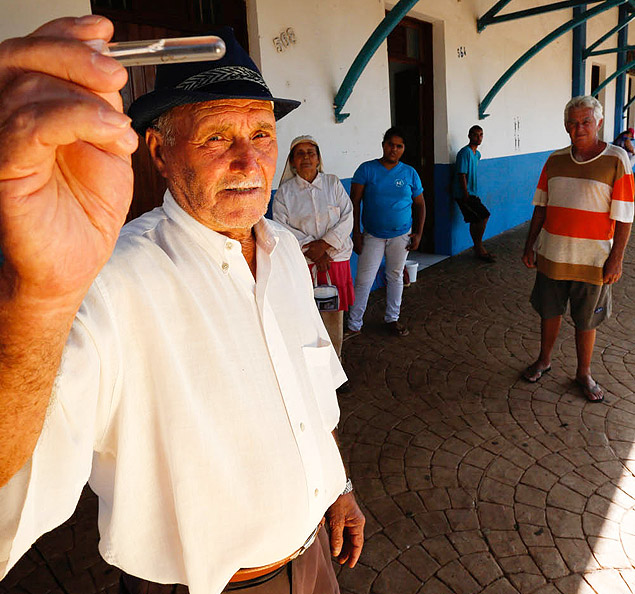Latest Photo Galleries
Brazilian Markets
12h25 Bovespa |
+1,35% | 126.338 |
16h43 Gold |
0,00% | 117 |
12h17 Dollar |
-0,70% | 5,1274 |
16h30 Euro |
+0,49% | 2,65250 |
ADVERTISING
Dengue cases scale up and turns chapel into hospital in São Paulo
03/05/2015 - 12h49
Advertising
JULIANA COISSI
FROM SAO PAULO
MARCELO TOLEDO
SPECIAL ENVOY TO TRABIJU
The explosion of dengue cases in the countryside of São Paulo, which left even a mayor ill, has transformed a chapel and a school into makeshift hospitals, forced the closure of schools and made municipalities donate repellent solutions to the population as well as seeds of a plant that attracts the predator 'Aedes aegypti'.
A survey by Folha shows that the situation is the most critical since 2010.
| Joel Silva/Folhapress | ||
 |
||
| Pensioner João Rolin, 77, shows test-tube with dengue fever mosquito larvae |
In 50 of the 645 counties, the journalists mapped 44,140 infections - confirmed cases, not only suspects. It is more than the amount recorded in the whole State in the first two months of each of the last five years.
Since January, 28 people have died from dengue and there are 38 other suspected deaths under investigation. In the capital, there are 563 cases and a suspected death currently being investigated.
Data from the Ministry of Health, which only considers suspected cases, shoe 51,800 notifications in Sao Paulo until February 14th, 900% more than the same period in 2014.
Dengue is in the limelight in cities with less than 40,000 inhabitants, such as Florínia and Trabiju, where the average is one ill person to 13 or 14 residents.
Cases are scattered throughout the state, with registered outbreaks, epidemics or deaths in 11 of the 15 administrative regions of São Paulo.
With 2,066 cases, or one every 16 inhabitants, Aguaí decided to reopen its philanthropic hospital, closed since 2013, to install beds in its chapel for dengue patients.
In 2014, the city faced water shortages, which led the population to stock up water in buckets and gallons. The result: health workers found dengue mosquito larvae in leaky containers.
Among other tools adopted by municipalities include drones to check breeding, messages being played in huge speakers on cars and on the church tower in addition to priests making appeals at mass.
Translated by CRISTIANE COSTA LIMA



